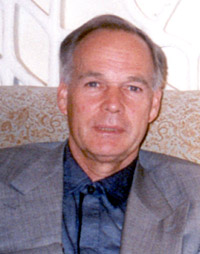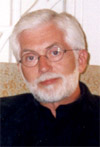
Sven Erik Nordberg, Ambassador of Royal Denmark to Yemen: “The promotion of the Democracy and Human Rights project is the most important official program we intend to go about in Yemen.” [Archives:2001/19/Interview]
May 7 2001

Q: What are the Objectives of this visit? And do you have plans to establish a permanent embassy of Denmark here in Sana’a?
A: Royal Denmark and the Republic of Yemen have always maintained good relations. It is true that this is my first business visit to Yemen as the ambassador of Denmark, but the councilor, Mr. Ben Raul, of our embassy in Riyadh has been paying regular visits to Yemen. Also, there is an honorary consular Mr. Ahmed Hayel Saed in Taiz who is General Manger of Hayel Saed Company. He takes care of the consular matters between Denmark and Yemen, and some commercial matters. Therefore, for the time being there is no plan to establish an independent embassy in Yemen. We have the Danish Royal Embassy in Riyadh to attend to the Danish concerns on the Arabian peninsula.
As for our objectives during this visit, we have come to gather information about the policies of the new government. That Yemen has a female minister for human rights issues has made it among the forefront countries in the world.
We are here to promote the commercial opportunities between Denmark and Yemen, and to follow developments of the Democracy and Human Rights Program, which is the most important project of Denmark in Yemen. This is to support NGOs, human rights organizations, human rights of women, and women prisoners in Yemen. Last but not least, the objective of the visit was to obtain an over all assessment of the security system, so as to promote Danish tourism in Yemen.
Q: How successful can you say your visit is in accomplishing your plans?
A: During our 5-day visit, we have been to Sana’a, Taiz and Aden. Regarding the political situation I think I have got a very good and broad picture because we have been in touch with so many people. Regarding the human rights program we are running, I can only assert that those NGOs we are working with have been doing a very serious job, and professional work. In terms of commercial prospects, I think our final assessment is that it is time that more Danish companies came here, and investigate the possible areas for investment. Regarding the last issue of tourism business, I think that if a group of tourists is accompanied by a professional guide who knows Yemen’s conditions very well, and the tourists stay away from the sensitive areas where a number of incidents happened, they should be fine. I hope that the details we have been briefed about will lead us to the conclusion that we can safely recommend tourism in Yemen. But I have to say that a final decision will take time. Though we will try and make a decision very soon.
Q: In which aspects do you plan to expand your commercial interests?
A: Our role is to study the situation and recommend. However, it is very clear to us that Yemen has a lot of problems to deal with; there is unemployment and the investment situation and the infrastructure should be improved. But I think also that business companies might find better potential and possibilities in the years to come. Our job is to draw the attention of the Danish companies and they will make their own decisions. But we can point to special sectors and tell them that these particular sectors are. Yemen is a good market.
Regarding the Aden Free Zone, this is another possibility but it is quite evident that the avenues for investment in Sana’a are much more than just in Aden. Or for that matter other places in the country.
Q: What are the other interests of Denmark in Yemen?
A: The purpose of this visit is an assessment of the present situation; where is Yemen now. Ministers and businessmen have told us and explained their views regarding the present political situation. And we will report that back to Denmark. As for cultural aspects if you consider the tourism aspect, then we can say there might be some interest in this particular field in future. But to be fair the promotion of the Democracy and Human Rights project is the most important official program we intend to go about in Yemen.
Q: How do you assess the democratic experience Yemen has gone through, especially in view of the fact that we have the first female minister of Human Rights?
A: Again and again I have heard the words ” new blood” from the diplomats and trade people. Although this is an internal procedure and we cannot claim that we can judge, but we realize that the new government has very little time. It has to act fast; within two years. But you have new ministers in many key ministries. So we hope, like all the people we talked to, that this will lead to a better situation in the country. We will be following it, and not only us, but many European countries as well. Yet, we say that nobody can make Yemen better than the Yemenis themselves. I would like to mention that there is huge Yemeni capital invested outside the country. If immigrants came back and invested in their homeland, it would radically change the investment scenario of the country.
Yemen is a wealthy country, and there is so much that could be done.
Q: What kind of aid is Royal Denmark providing to Yemen?
A: Like I mentioned before, The Democracy and Human Rights Project is our greatest concern in Yemen. It started 7 or 8 years ago, and the amount of money earmarked for this project is US $100,000 per year. We give it to help people working in those particular sectors which promote human rights and democracy. That means that we try to select NGOs working on human rights and on women’s issues. We have also helped women in prison so that they can get legal advice. We have sponsored seminars and the Yemen Times has also participated in seminars. And we will continue to support such projects in the future.
This is in the non governmental sector. In the governmental sector, we have provided Yemen’s parliament with hardware and software, and we have given language lessons. Now, as a part of the program a delegation from the Danish parliament is going to pay a visit to Yemen’s parliament to see how it works, and vice versa. Members from the Yemeni parliament are to go to Denmark and see how the Denmark parliament works and to study which particular fields they may help each other. This project may take place this year.
Q: Any last comment you would like to make
A: I should say on a personal level that it has been a tremendous experience to be in Yemen. The people are very kind and very hospitable. It’s a beautiful country. And I am looking forward to coming to Yemen again.

Q: Is there a particular message you would like to convey?
A: Yes, actually the problems we have been facing have to do with the bans from the GCC countries, which are extended to Yemen, on European meat products. Danish products have been hit by these bans. This is not something new that Europe is facing. Especially after the Mad-Cow issue, the problems increased when poisonous material was found in some food products in Belgium. However, the problem now is that many countries are taking Europe as a whole regarding measures for food safety, which is not necessarily quite fair. Denmark was affected by these bans for few months last year. That time, the ban was also on dairy products, which was not a correct decision. Fortunately it got abolished after a short time due to the fact that the disease is not transmitted through milk products.
It was kind of a commercial shock; because the volume of diary products to the region is quite high. Still, the band on meat products is there. We have tried all these years to build an image as a country recognized every where for producing safe food products. And we have, of course, intensified work in this regard. What we have done is held a number of seminars last year and this year in the GCC countries. All these seminars were attended by Danish experts who have come to get a clear picture regarding the products in the GCC countries. Many businessmen and investors of the region have attended these conferences and asked many questions. It was an interactive forum where information on subjects of mutual interest was exchanged. The exporters themselves financed these seminars. And we are very interested in continuing this kind of work in other countries including Yemen of course. It all depends on the funds that we can manage.
One very important point here is that through such activities we get close to the local administrations, so that when there is a problem we know whom to contact and whom to approach. We would very much like that the right people approach us. We are very willing to give information because there is a lot of experience we would like to share in these matters.
Q: What is the impression that you will carry back about the three main cities of Yemen which you have been to?
A: In my field of work, which is food and Agriculture, my chief concern is in viewing the potential of Yemen as a consumer country, the demands of the consumer here and whether they are getting broad. Also, whether people have more money than before and so on. And also we look at the infrastructure of trade. Is it possible for a given product to be distributed to a wide range of consumers or is it limited? These are the factors, which we consider. And we can see that the average income has not gone up. It has probably been declining. This poses a problem perhaps to Danish experts because we are interested in markets, which give a higher price than the Yemeni market. This does not overshadow the fact that we are doing very well in terms of milk products, and fertilizes, which constitute something like 95% of all our exports to Yemen worth about US $14-15 million. But there is no doubt that this figure will increase with the increase in the population of Yemen. We can see that there is excellent infrastructure for trade. The companies are able to distribute the products extensively. It is when we look at the possibility of products being circulated a wider range with higher prices that I become a bit pessimistic.
I can say that I have a better impression about the companies dealing with Danish products. The Yemeni companies are extremely capable. I think the Danish companies have found the right partners. I am happy to see the way the products have been marketed. This shows that there could be no limit to the cooperation that could take place.
——
[archive-e:19-v:2001-y:2001-d:2001-05-07-p:./2001/iss19/intrview.htm]


